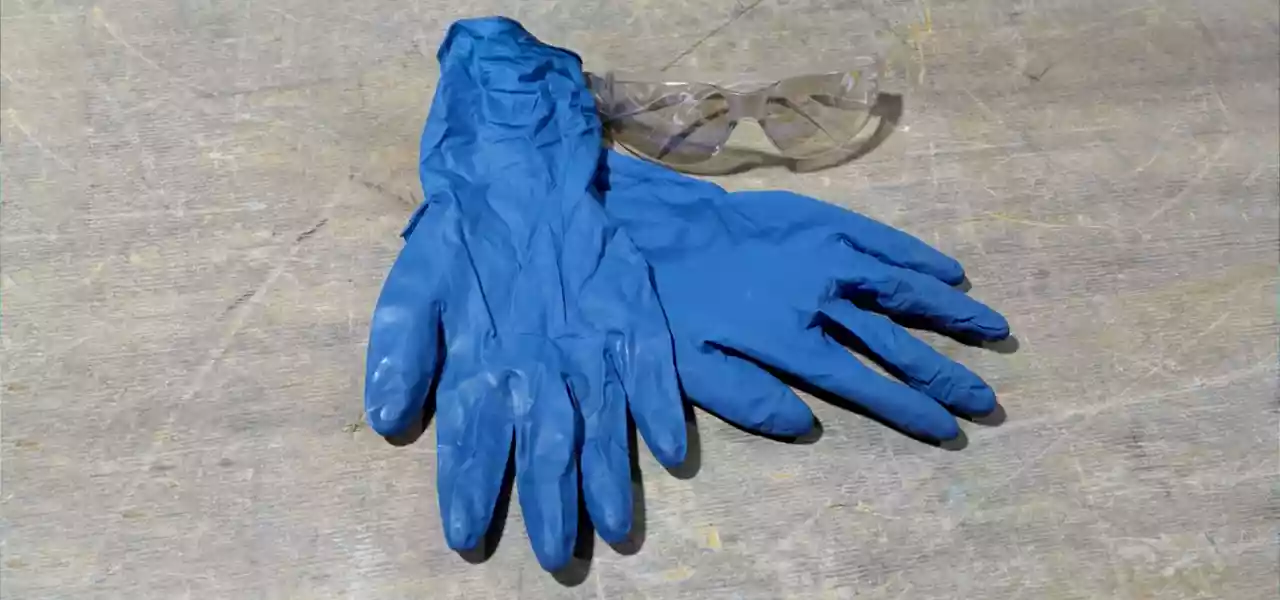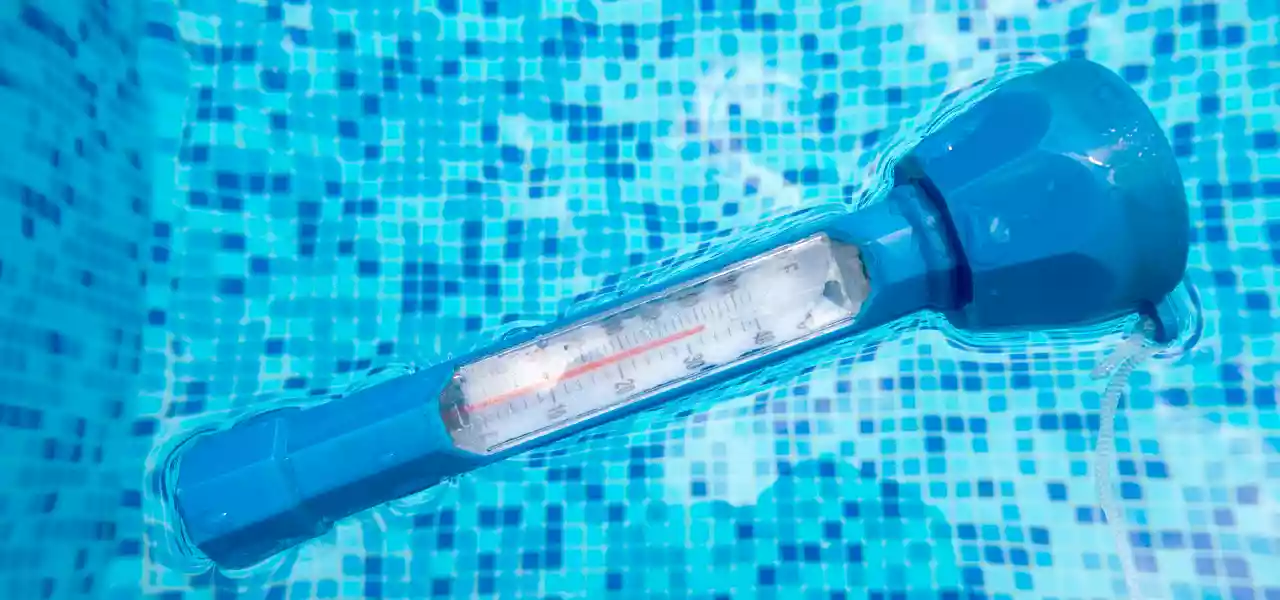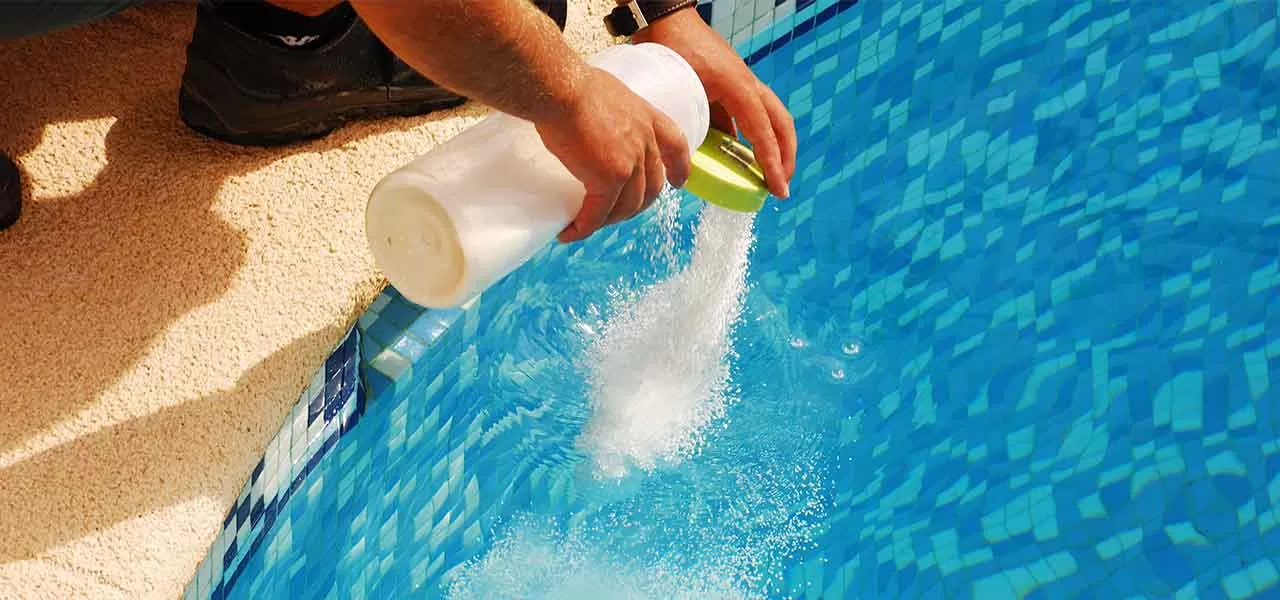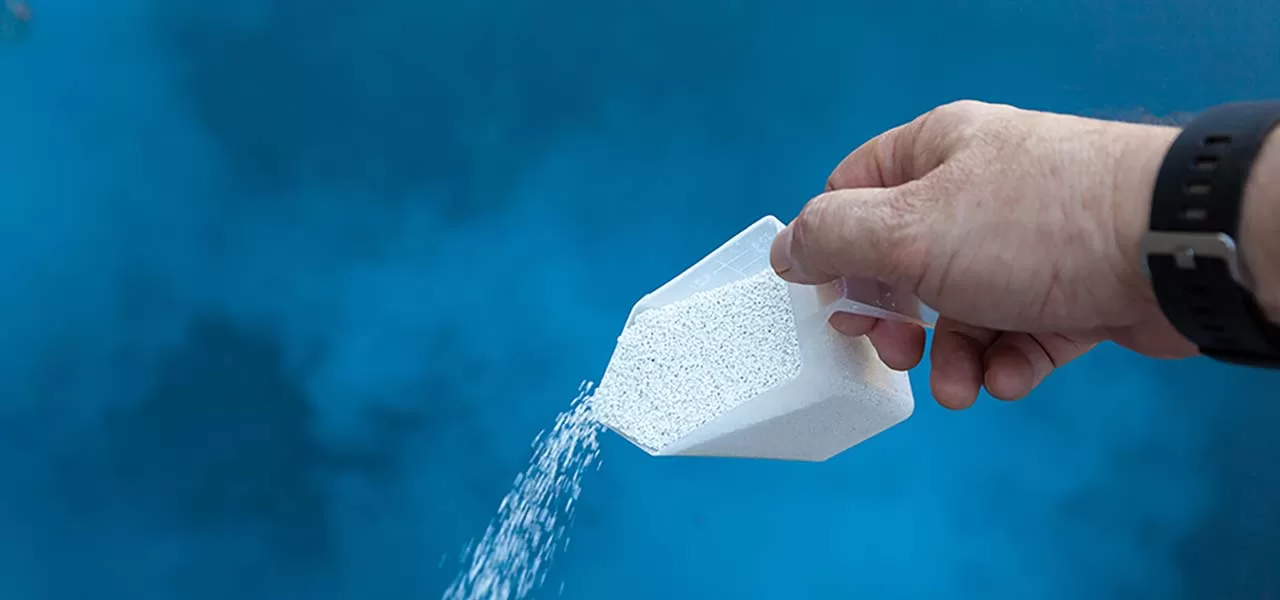When it comes to taking great care of your beloved swimming pool, you know how essential water chemicals are. But while there’s no denying the importance of pool chemicals, it’s crucial to understand the risks associated with using them. So let’s dive into pool chemical safety and learn the proper ways to transport, handle, store, and dispose of pool chemicals.
How to Safely Transport Pool Chemicals
Commercial transport of chlorine, algaecides, and other specialty pool chemicals is highly controlled to ensure safety. Trucks carrying hazardous materials, such as sanitizers and oxidizers, must display proper signage, and the driver must be trained in emergency procedures, such as how to respond to a spill.
However, residential transport of pool chemicals is not regulated, which can lead to dangerous situations if the driver is unaware of the risks. When transporting pool chemicals from the store to your home, follow these transportation safety guidelines:
- Check lids. Before leaving the store, verify all lids and caps are sealed tightly onto the chemical containers. If a lid or seal is damaged, notify an employee immediately and select a different product.
- Secure and separate chemicals. Place compatible chemicals inside plastic tubs or boxes, and secure them in your car. Never store incompatible chemicals next to each other, and always follow safety suggestions on the chemical label.
- Make two trips if necessary. When purchasing incompatible chemicals, like liquid chlorine and muriatic acid, you may need to make two trips if you can’t safely separate the chemicals due to space limitations. While this may be inconvenient, it is of the utmost importance that you follow safety precautions when transporting and storing pool chemicals. Additionally, liquid chlorine and muriatic acid should only be transported in the trunk of your car, never in the passenger compartment.
- No detours. Once the chemicals are safely separated and secured in your car, go directly home so you can unload them as soon as possible. Drive safely, and don’t make any unnecessary stops along the way.
How to Safely Handle Pool Chemicals
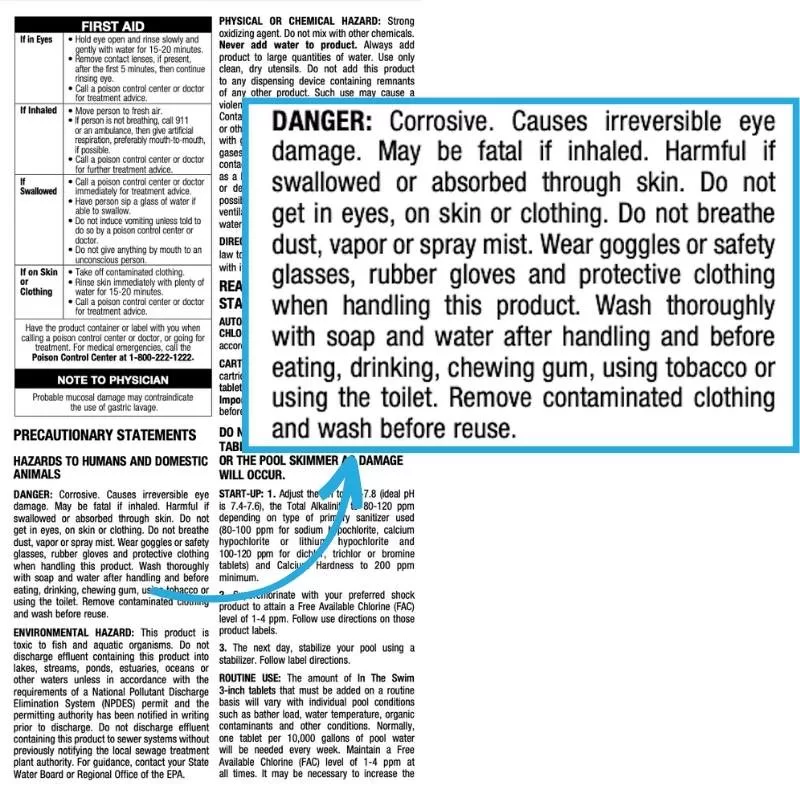
When it comes to handling pool chemicals, it’s always better to be safe than sorry, and closely follow all label instructions. Some pool chemicals, like enzyme products, are relatively harmless, while other chemicals, like shock and algaecides, can cause serious bodily harm if handled incorrectly. Therefore, we strongly recommend reviewing the Safety Data Sheets (SDS) for the products and following these pool chemical safety tips whenever you handle pool chemicals.
- Read product label instructions. Carefully read all instructions before opening and using any pool chemical. Additionally, ensure you know the risks associated with using each chemical, and how to administer proper first aid if necessary.
- Follow proper chemical application process. Add each chemical to your pool according to the label instructions. The application process for each pool chemical varies, and incorrect handling or use can cause serious damage.
- Wear personal protective equipment (PPE). Safety goggles, gloves, and a face mask or respirator are a must whenever handling caustic chemicals like chlorine and shock. These products can lead to serious health concerns if swallowed or inhaled, so use extreme caution when handling.
- Seal lids tightly after use. After adding a chemical to your pool, return any scoops used to the bucket and seal the lid tightly around all sides. Loose lids allow moisture and contaminants in, and are unsafe around children.
How to Safely Store Pool Chemicals
When it comes to safely storing pool chemicals, there are four main factors to consider: security, moisture control, temperature, and ventilation. Ensure your intended storage area meets these requirements before keeping chemicals in it.
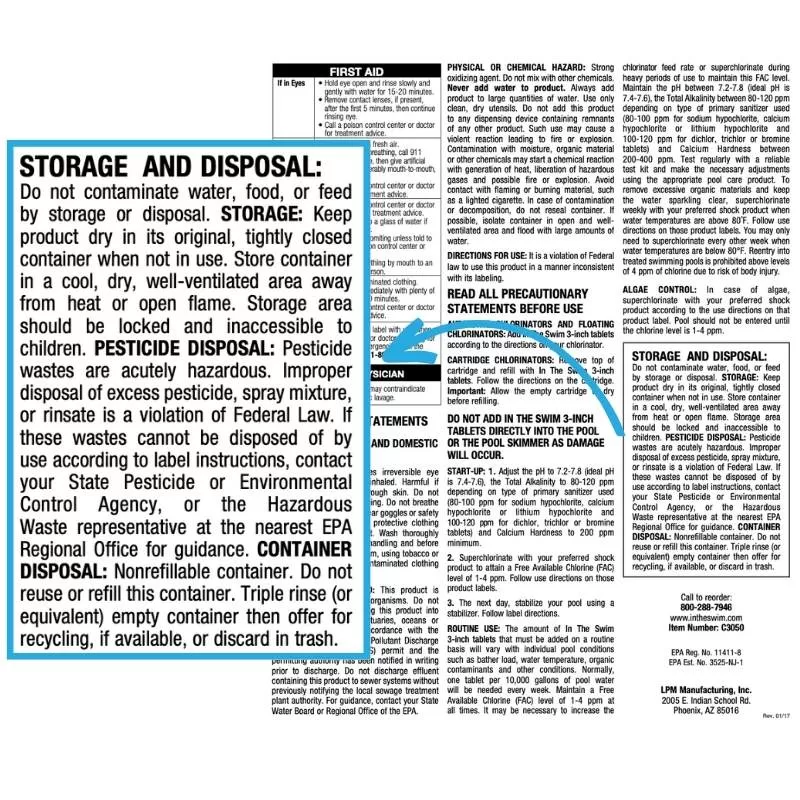
- Security: Store your pool chemicals in a locked, hard-to-reach area, like a backyard shed or high on a shelf in the garage. Children and animals are known for their curiosity, so keeping your chemicals out of their reach is crucial.
- Moisture Control: Water damage can render many pool chemicals ineffective, or even cause a dangerous chemical reaction. Always double check that lids and caps are tightly sealed after each use. Avoid placing chemicals on the ground or on low shelves, as this can present a flooding hazard.
- Temperature: Much like moisture, extreme temperatures can also have an adverse reaction on pool chemicals, such as enzymes. Keep chemicals stored in a cool, dry area out of direct sunlight.
- Ventilation: Some pool chemicals, like chlorine, release gases that can be dangerous if trapped in a sealed area. Furthermore, fumes from oxidizers and acids can corrode metal over time, especially when left in high concentrations in a poorly ventilated area. Ensure your designated storage area has plenty of ventilation and provides sufficient air flow.
Always follow the storage instructions printed on the product label and never store incompatible chemicals together. Additionally, avoid stacking chemical containers and never store liquid chemicals above dry chemicals, especially oxidizers.
PRO TIP: Not sure which chemicals go well together, and which don’t? Don’t worry, we have an article for that! Check out Bad Pool Chemical Combinations to learn more about the potential dangers caused by incompatible chemical interactions.
How to Safely Dispose of Pool Chemicals
Just like food, household cleaning products, and medicine, pool chemicals also have expirations dates and can go bad if stored improperly. But unlike spoiled milk or expired allergy medicine, you can’t simply throw old pool chemicals away in your trash.
Because some pool chemicals are caustic and harmful to the environment, you must dispose of them in the correct way. Typically, most pool chemicals list the EPA-approved method of disposal right on their label. But when in doubt, call your local waste management facility and inquire about your disposal options. And remember to always wear proper PPE whenever handling, storing, or disposing of pool chemicals.
Pool chemicals are an absolute necessity for keeping your swimming pool clean, safe, and beautiful. But there are risks that come with handling, storing, and disposing of pool chemicals. Therefore, always follow all pool chemical safety recommendations whenever you come into contact with these products.

